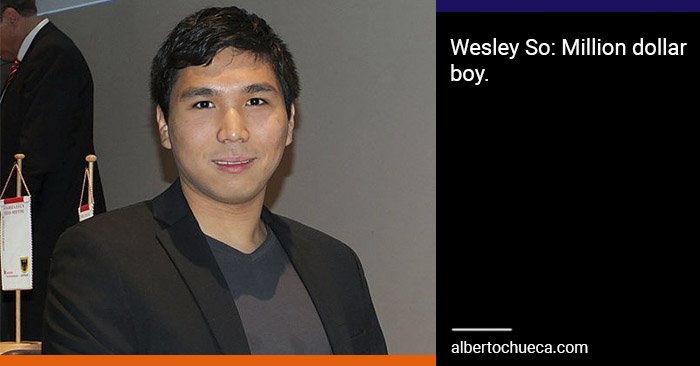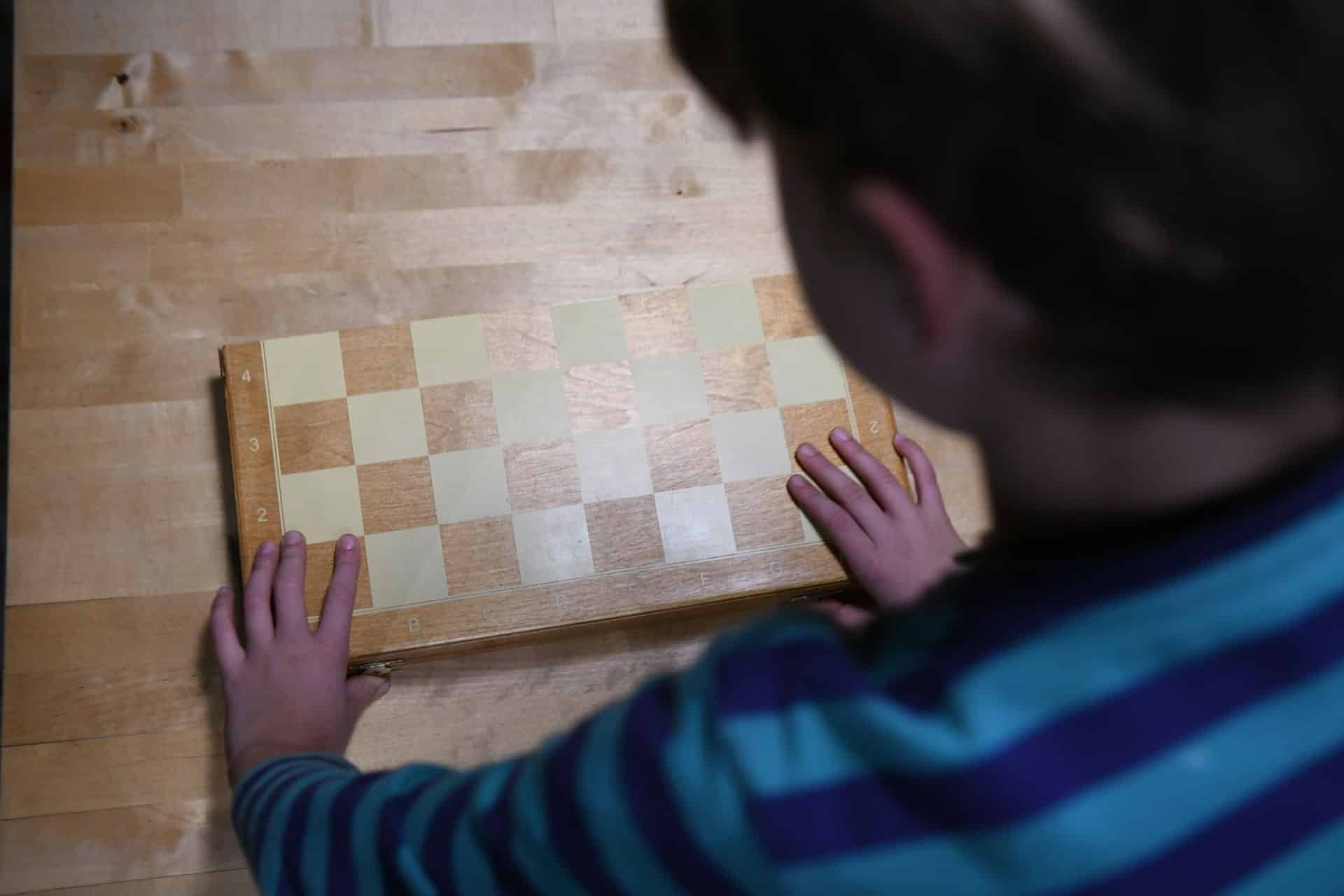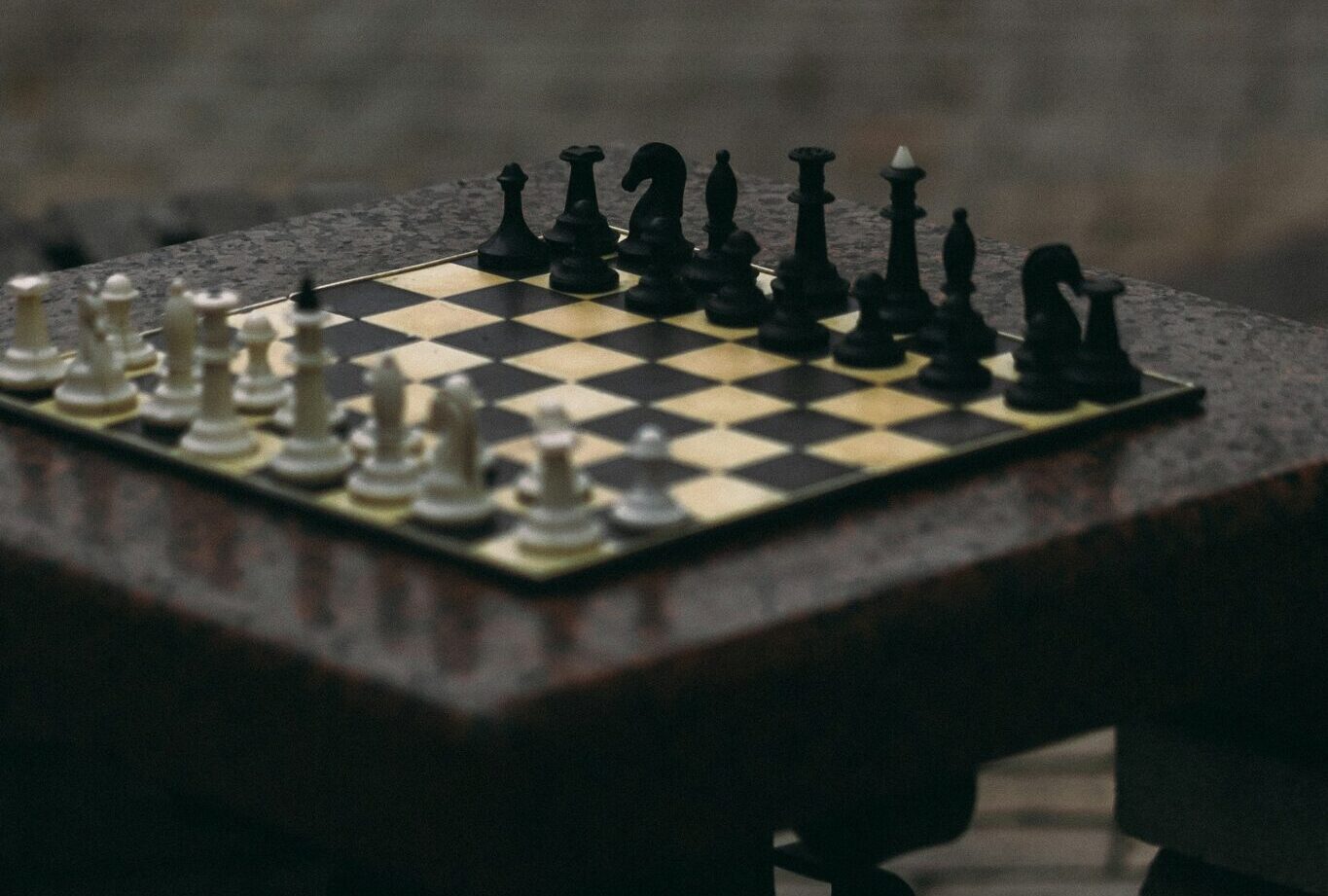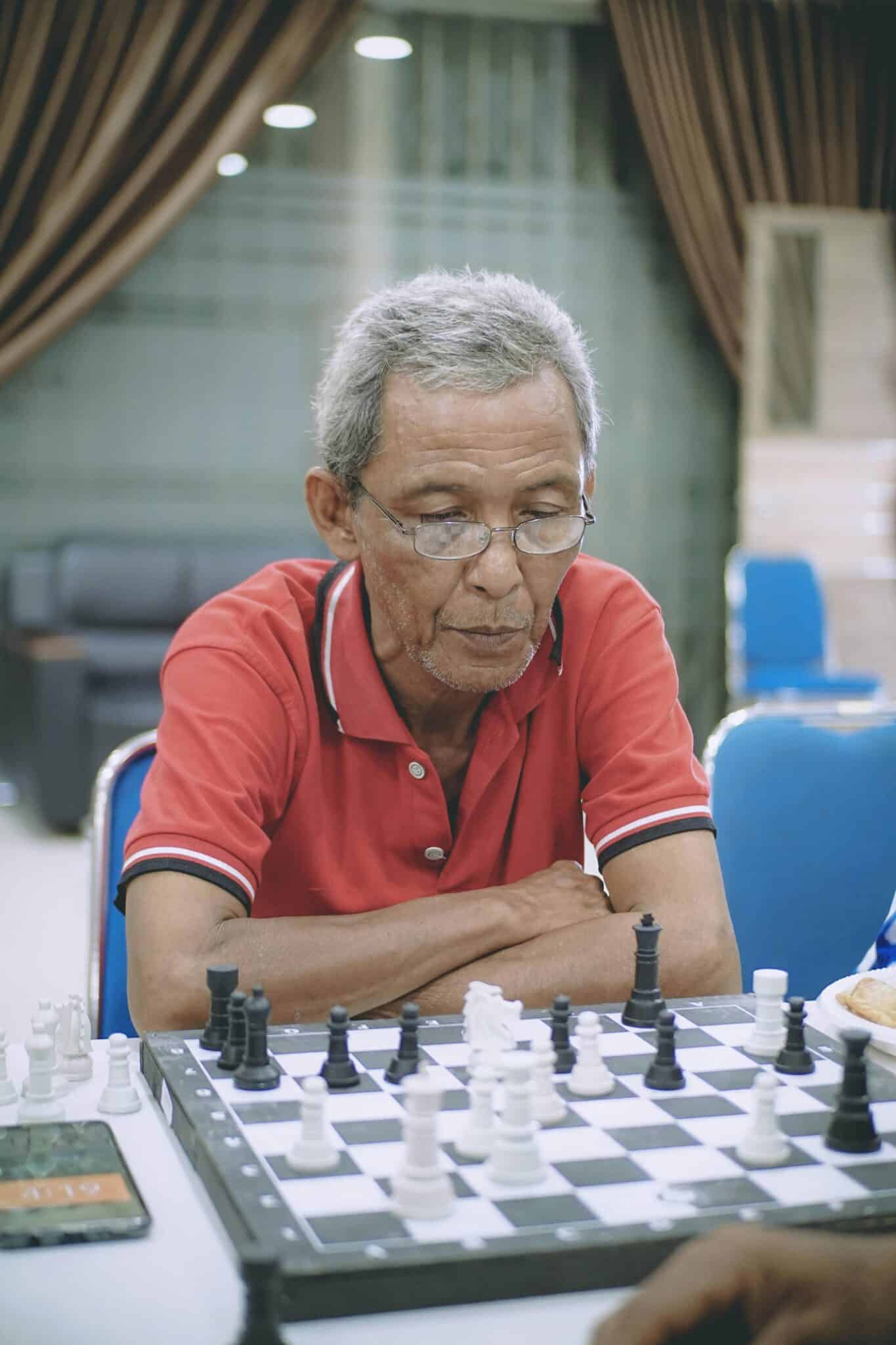Table of Contents
Wesley So: a chess prodigy!
A chess prodigy child, Wesley So in 2008 became the youngest player to cross the threshold of Elo 2600. He broke the record established by none other than Magnus Carlsen. Four years later he would do the same with the bar of 2700. And by February of that year, he was among the top ten worldwide.
His debut in international chess happened during Summer Olympics at Turin (2006) when he was 13 years old. And in 2007 he gained the Grandmaster’s title.
But this new GM from the Philippines reached some impressive results even before at the children’s and youth championships on the continental and worldwide levels. He won individual under 16 gold medals in the Olympics (Singapore 2007 and Mersin 2008).
Then he became the thrice national champion. In 2009 – at the age of 16 – he beat several pretenders in the world cup, leaving behind Ivanchuk and Kamsky, among others. His list of successes in international tournaments is already long enough. We are talking about a player that will only turn 22 on the 22nd of October this Fall.
Family life… Unstructured, and landing in the USA…
In 2012 his parents emigrated to Canada, leaving Wesley So in the Philippines. Was that his idea, theirs, of someone else’s?
The thing is – and we are not trying to make any accusations – Wesley So was fostering some resentment against his parents due to the fact that they allowed him to stay behind, which he interpreted, in some sense, as if they had estranged him, and that had serious consequences for his emotional balance.
Then he was sixteen years old and he knew now, or he thought he knew, that such decision wasn’t in his hands, it just wasn’t up to him.
In 2012 The Webster University of Saint Louis offered him to be part of the Spice program. This is essentially a scholarship to study economics and finances.
He accepted it, but once in Saint Louis, he felt emotionally unassisted…
He was lost in a world where everything was new and hard for him. The relationship with his parents had cooled considerably and they didn’t appear to care about the new state of affairs or the situation in which their son found himself.
In college, he had certain support from his coaches and partners like Ray Robson, with whom he shared room and analysis. As well as Susan Polgar who helped with the bureaucratic paperwork.
But he didn’t find the kind of emotional support necessary for someone who has lost contact with his parents and who has just arrived in a country radically different from the Philippines, with all the incertitude and worries that this produced. After all, he was a youth of just 19 years of age.
Wesley So: New family and goodbye to Webster…
While he was playing an Open in Minneapolis, Wesley So met a girl, Abbey, and through her, her parents Lotis Key and Bambi Kabigting, both originally from the Philippines. In this family, young So found affection and comprehension, because they received him with open arms. The relationship with them went closer, and next Christmas, he asked their permission to spend the holidays with them.
The friendship was mutual, and the Kabigting/Key gave him the familiar warmth that he so desperately needed.
This relationship produced a very negative effect in Susan Polgar and Paul Truong, quite unexpectedly. Both suggested that Wesley So should stop frequenting that family because it distracted him from his studies and chess.
Lotis sent a framed Christmas picture and, in his naivety, So showed it to the leaders of the chess program, who viewed it with clear disapproval on their faces. That was the straw that broke the camel's back.
In early 2014 Polgar and Truong asked Wesley So to break up his relationship with the Minnesota family. They tried to dissuade him.
And then they ordered him to do it. In the beginning, the young GM accepted their authority. But then he explained the situation to Lotis Key, after understanding that nobody had the right to make such a decision for him.
Wesley So: Millionaire Chess of Las Vegas…
After several months of confusion and suffering because of a deteriorated relationship with the chess leaders of the university, comes the success of winning the Millionaire Chess of Las Vegas.
This constitutes an outstanding triumph followed by loud accolades and a fat check of 100,000$. After that star moment, still in October 2014, he makes a crucial decision: he quits Webster University because he decides to become a professional chess player.
And at the same time, Lotis Key and her family in Minneapolis welcomed Wesley. They helped Wesley So to become an adult.
Lotis was not only instrumental in providing a mother figure, in a sense but also providential, because she perfectly understood Wesley’s emotional and sociological needs and helped the youth to improve his verbal expression.
From that moment on, the communications and emails of Truong change from deterring to intimidating. Effectively becoming a campaign of harassment even hinting, in a threatening way, that anything Truong was saying about So would become common knowledge, because “the chess world is very small and it’s all talk and gossip”, and that chess organizers would soon be aware of So’s character.
That was clear psychological aggression that must have done much damage to the grandmaster. It wouldn’t be too bad if someone turned Truong’s own argument against him.
Reminding him that, given that the chess world was like a jungle, he couldn’t help his own personality becoming infamous.
In November, Wesley So already was a member of the US Chess Federation. Despite the difficulties that he encountered during the transfer because the Chess Federation of the Philippines didn’t make simple, in any way, the departure of their best player. But it was So, and not the University or the USCF, who assumed all the expenses of the process.
The US Championship: A trap…
The last US championship was held in March/April in Saint Louis and, of course, it was on the premises of Webster University.
Truong knew that the biological mother of So, Eleanor, didn’t consider chess to be a professional activity, so he invited her to Saint Louis, in a tour de force to pressure him, in order to make his return to Webster.
It was easy to see that all guns were loaded and aimed at Wesley So.
In one of the games, Wesley So was warned that it was against the rules to write down anything but his moves in his scoresheet. Then, in his naivety, he thought it was a good idea to do the writing on a separate sheet of paper. And during the ninth round, the referee showed him the red card, not without first consulting with the tournament director.
The notes were personal reminders meant to steady his head and keep up his spirits; in any case, it was just So’s habit that was deep-rooted, as he explained: “Since I began to live alone, I acquired the habit of writing notes for myself, because I was very emotional and tended to do things impulsively.”
What was the content of these notes?
“Never break your rules”
“Just sit down for the entire game, never get up!”
“Double-check and triple-check!”
“Use your time, you have a lot of it!”
Tremendous and significant information that could give a game a new turn…
Were those notes some dangerous external information that, according to the rules, justified the forfeit of his game against Akobian?
Wesley So: Emotional state…
One may argue that the referee and the tournament director demonstrated abusive behavior if we consider the player’s background. This was not justified. Wesley So was shaken, harmed and treated unfairly by the bullying on the hands of the organization.
In a clear move to punish him for his defiance. It was a kind of a harsh “lesson” by the university, to make him pay dearly for his ingratitude.
After all, wasn’t it Wester that facilitated his arrival in the USA, giving him a scholarship? That was true, but in return, the university’s team was strengthened by an international figure like Wesley So.
On the other hand, aren’t we talking about the country that proudly shows off the Statue of Liberty, the country of freedom and individual opportunities? Did anyone care about Wesley’s emotional state?
Those who reproached him for leaving his studies didn’t seem to act upon a valid concern about his college education, which would be an honorable thing to do, but rather upon spurious interests.
And now it would be interesting to know if the academic authorities endorsed or approved the actions of Paul Truong and Susan Polgar. And whether they knew about their scheming.
“My family and Paul (Truong) ruined the US Championship for me”. Said Wesley So in a recent interview with Dirk Jan ten Geuzendam.
Matter of style…
“Until now, I played aggressively. Buy I would like to play solid games, with a solid opening repertoire, too. I think that my style is like that of Anand” (from an interview in 2009).
It must be said that until recently So didn’t have coaches or elite analysts, as his compatriot, IM Rudolfo Cardoso, remembered, so that his theoretical knowledge about openings, the preparation of the repertoire, was all due to his rare talent and individual work.
We don’t know if Wesley So has an analyst at this time because it is an issue that grandmasters consider almost a state secret.
After the Gashimov Memorial (Shamkir 2015), the World champion, Magnus Carlsen, said about his chess style: “Wesley So is very dangerous and it is not easy to understand how he plays.
Sometimes I can’t understand his games.” Botvinnik said the same thing about Tal and Spassky about Petrosian.
So’s originality produced the same impression in many different players. That could be the main characteristic of his style, although we can appreciate an incredible versatility in his games.
Both in the openings from his repertoire and in the moves he chooses in critical or non-critical positions. To get an idea about his strengths, we refer the reader to his games, for example, against Ni Hua (Dresden Olympics 2008) and Giri (Shamkir 2015).
Wesley So: Faith in the future…
After an undisputed triumph in the Capablanca Memorial (2014) and second places in the big tournaments of Wijk aan Zee and Dortmund (2015). So didn’t have a good performance in the Sinquefield Cup. A tournament that he started with big expectations and ended, in fact, like a Laterne Rouge.
He ignored the negative impact of the circumstances. Webster developed this competition. He must have underestimated the ambient hostility. Because no one of us is aware of the psychological impulses that affect our spirit.
It is easy to imagine that he suffered from additional pressure there, apparent or not, detectable or not, but clearly real.
Wesley So is a firm believer and he is convinced that God has drawn the roads for each of us. And also that those who abandon their road due to difficulties commit a grave mistake. Standing on one of those crossroads, he thinks that he is on a thorny path now.
But this won’t make him stop moving ahead on his path.
If each of us has a dream, Wesley So’s dream is to become a great professional (he already is one!). In addition, he wants to fight for the World Championship. Certainly, that’s an ambitious dream, but not a vain illusion.
Go forward and don’t look back, Wesley So!
This young grandmaster, who likes Italian food and whose bedside books are the Bible and works of Kasparov, is currently ninth in the international ranking. He has an Elo rating of 2773 and the last name that is as short as his talent is great.
He faces the future with bravery and the moral and affectionate support of his new family. As well as the admiration of thousands of his fans all around the world. Go forward and don’t look back, Wesley So!






